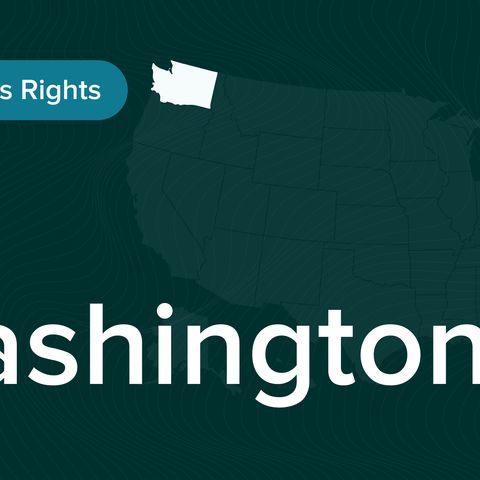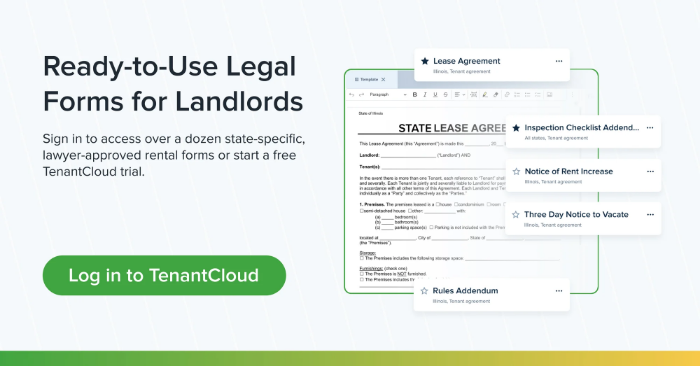
If you own unattended property in Washington, you may be at risk of having someone move in without permission, otherwise known as squatting. While it may seem illegal, squatters have rights that landowners must be aware of before attempting to evict. Additionally, squatters can claim legal ownership of real estate property through Adverse Possession.
Washington law allows property owners to take legal action against squatters without a specific notice period before eviction.
The TL;DR of Squatters Rights in Washington
In Washington, squatters can only gain legal ownership of property through adverse possession after meeting strict requirements, including continuous occupation for 7–10 years, paying property taxes, and proving open, exclusive, and hostile possession.
Squatters are not the same as trespassers or holdover tenants, and each situation requires a different legal response. While adverse possession claims are rare and difficult to win, property owners must act quickly when discovering unauthorized occupants. Washington law allows landlords to involve law enforcement to remove squatters using a declaration form, making removal faster than traditional eviction in many cases. The best protection against squatters is prevention through regular property checks, tax payments, security, and prompt legal action.
What is Adverse Possession?
In simpler terms, Adverse Possession is a process that allows squatters to own someone else's property. If they meet all seven requirements, a squatter may file a claim for adverse possession and gain legal ownership. These requirements are as follows:
- Hostile Possession: In this case, “hostile” does not mean unfriendly. Rather, hostile means the possession infringes on the rights of the owner, either by mistake or trespassing. The key here is that the owner did not give their consent and the squatter does not have actual possession of the property.
- Continuous Possession: The squatter must live physically on the property for seven years if they have a Color of Title. If they do not have one, they must live continuously on the property for 10 years. Continuous possession starts over if the squatter leaves the property for an extended period.
- Notorious Possession: The occupants must live in a way that is obvious to anyone, not hidden. It is often times a good faith mistake, an invalid or incorrect deed, or other mistake that interfered with the property ownership.
- Exclusive Possession: The squatter must possess this property exclusively, not with the legal property owner. The exclusive possession must be consistently for 7-10 years.
- Color of Title: A Color of Title, an invalid document that appears to be a legitimate claim of ownership, is required for seven years of continuous occupation.
- Property Taxes: The squatter must pay property taxes for the entire 7-10 years they occupied the property. If they missed even one year of property taxes, the clock starts over.
In some cases, other actions may be beneficial to a squatter, such as taking care of the property as if they own it and making substantial improvements to the property out of their own pocket.
If you're a property owner in Washington, the last thing you want is to have someone take legal ownership of your investment; that's why it's important to understand Washington's squatter rights laws so you can better protect yourself. Learn everything you need to know about Adverse Possession and how to prevent squatters on your land below.
How Washington Adverse Possession Works
As mentioned, a squatter can gain legal ownership of a property in Washington if they have a Color of Title and have occupied it continuously for at least seven years. A successful adverse possession claim must include every legal requirement.
Adverse possession laws gives squatters an opportunity to obtain legal permission to stay on an otherwise vacant property. It also punishes property owners who leave properties unattended.
Claiming Adverse Possession on Forestland
In Washington, making a adverse possession claim on forestland has several requirements. Substantial improvements to the land totaling at least $50,000 are required, as well as the following:
- 10 years of actual, open, notorious, and hostile use—like logging, fencing, or building. It must interfere with the owner's rights and can potentially be reduced to 7 years if you pay property taxes. Keep in mind that forestland possession is complex considering Designated Forest Land (DFL) rules.
- In order for an adverse possession claim to be a success, the squatter must prove that they have acted like the true owner despite the titled owner's rights, often requiring legal action.
Understanding Washington Squatter Rights Law
Squatting can happen for several reasons, such as a person occupying an abandoned property or moving into a foreclosed home. Other common reasons for squatting include:
- The person takes shelter in the property due to an emergency or unforeseen circumstance
- The occupants were not aware that the property was taken or that they needed permission
- A neighbor assumes part of the land accidentally and maintains it, puts their property on it, and pays taxes on it.
- A mistake with the title deed or having partial documents but not the full title to the land
When a landlord or property owner discovers someone squatting on their Washington property, the only way to legally remove them from the property is to follow standard Washington eviction laws, which we wrote about in detail. While many states are adopting more aggressive trespassing laws to prevent adverse possession claims, Washington's laws remain the same as of 2026.
We'll also go over how to evict a squatter below—without infringing on squatters rights.
Squatting vs. Trespassing
At this point, you may be thinking, isn't squatting just trespassing? Not necessarily. It's easy to mistake one with the other; however, the two have distinct differences.
What is a squatter, trespasser, and holdover tenant?
Trespassers are individuals who enter or remain on property without any legal right or justification, and this is classified as a criminal action in Washington.
What is a Holdover Tenant?
A holdover tenant is a person who occupies the property at some point through a rental agreement with the owner and refuses to move out after the lease expires. A lingering tenant may be unable to find another place to live, frustrated with the landlord, affected by economic shifts such as a recession or pandemic, or another reason.
If a holdover tenant refuses to vacate, the landlord has two options:
- The landlord can agree to extend their stay and continue taking rent payments, which is known as “tenants at will.” The landlord can then treat the occupant as a current tenant and can evict the tenant if necessary using the civil eviction process.
- If the tenant continues to refuse to leave after receiving a formal eviction notice or notice to quit, the landlord may be able to charge the tenant for trespassing and involve law enforcement officers.
It's important to seek legal counsel if you have a holdover tenant, as certain squatters rights and tenant rights may apply. On another important note, it's not advised to start having a squatter pay rent, as they may be entitled to tenant rights, which could make the legal eviction process more difficult.
Can squatters be charged with a criminal offense?
Yes. A squatter can receive criminal charges if they occupy a property after the owner makes it clear that their stay is unwelcome. They might also be charged with additional crimes, such as breaking and entering or trying to claim ownership using forged documents. But even so, squatters have rights that must be protected under state and city law.
Additionally, squatters can avoid a trespasser charge by meeting the following requirements:
- The property was vacant
- They entered the property due to an emergency
- The squatters improved the property by updating the paint, planting flowers, cleaning up trash, etc.
How to Evict Squatters in Washington
Self-help evictions are illegal in Washington; owners cannot forcibly remove squatters without a court order. To evict a squatter, a property owner in Washington must provide a written notice and then file an unlawful detainer action in court.
While many states require the landlord to evict tenants through the civil process, Washington's rules are different. If a landlord would like to remove squatters in Washington, they can do so by calling the police to start the eviction process. This is good news for property owners.
Owners will need to provide proof of title via a declaration form to show that they legally own the property and any other evidence to help their case.
What is a Declaration Form?
A declaration form is a document required by Washington law that allows police officers to remove squatters from a property. The landlord must specify in the form that they are the property owner, as well as state the following:
- The squatter is not a tenant or legal owner and is occupying the property without permission
- The property was not abandoned or welcome to the public when the squatter began occupancy
- The landlord understands that any false statements made can be used against them by the squatter
- Law enforcement cannot be liable for any actions resulting from removing the squatter
If the squatter does not have clear and convincing evidence that they have a right to the property, police officers can evict them from the premises and even arrest them for trespassing. This is faster than a traditional eviction process that a landlord would need to follow to evict a tenant.
How to Protect Your Property from an Adverse Possession Claim
When it comes to protecting your investment from squatters and adverse possession claims, prevention is key. Here are several measures you can take to protect your property:
- Pay Property Taxes: If you want to secure your rights as the actual property owner, make sure to pay property taxes each year and keep records of each payment for easy retrieval.
- Install Security Systems: A security system can deter unauthorized occupants from living on someone else's property. It can also help you prevent trespassers and protect from breaking and entering.
- Screen Tenants: If you plan to rent your property, make sure to carefully screen each tenant before they move in. This can help avoid any issues with tenants later on. (Pro Tip: Screen tenants thoroughly right in TenantCloud with our premium background, credit, and income checks.)
- Check the Property: Visit the property yourself or have a trusted friend or have an experienced property management company check the premises for you. Regular visits can deter squatters in Washington and beyond.
- Maintain a Lived-in Presence: Keep the home looking as though someone lives there, even if it's vacant. Stay on top of landscaping, get the mail, and clean inside and out regularly. This helps reduce the chances of unauthorized occupancy.
- Address Lease Violations: If you suspect you have a tenant or occupant overstaying their welcome, take immediate action and serve them with an eviction notice. Issue a proper warning and initiate a formal eviction process through law enforcement as soon as possible.
- Hang No Trespassing Signs: Obvious signs make it more difficult for a squatter to claim they did not know they were occupying illegally. This alone can deter a squatter trying to claim adverse possession.
Navigating Squatters Rights in Washington
An adverse possession claim may be an exciting time for a squatter hoping to claim ownership, but for property owners, it can be a nightmare. However, the more you understand Washington law and squatters rights in Washington, the more you can protect yourself.
If you find yourself needing to remove squatters from your property, consult with local law enforcement officers and legal doctrine for best results. Finding a reputable Washington-based lawyer can help you understand your rights as a property owner and receive specific legal advice based on your situation.
While adverse possession claims can be challenging, you're not alone. You have rights as a legal owner and can regain your ownership when the process is complete.
Protect Your Vacant Properties with TenantCloud
Do you have one or more rentals in Washington state? Our property management software is designed to help you stay organized—with secure document storage, separate tenant and maintenance request portals, in-depth tenant screening, and more.
Start managing properties and filling vacancies like a pro. Try a free trial of TenantCloud for 14 days today.
Are property taxes required in Adverse Possession in Washington?
Yes, a squatter trying to claim adverse possession of someone else's land must pay property taxes for the entire seven years they have occupied the property.
Can Washington landlords remove squatters?
While it is not recommended that property owners in Washington remove squatters themselves, they can take legal action by calling police authorities to have the squatters forcibly removed or filing for eviction.
Can I pay property taxes to claim my property?
Yes, if you pay property taxes regularly and on time, it helps to prove that you own the property in the event of a squatter trying to make an adverse possession claim.
Do I need a Color of Title to claim possession in Washington?
No, you do not need a Color of Title for a squatter to begin claiming adverse possession in the state of Washington; however, having one will shorten the period of occupancy it takes to make an adverse possession claim (from ten years to seven years).




